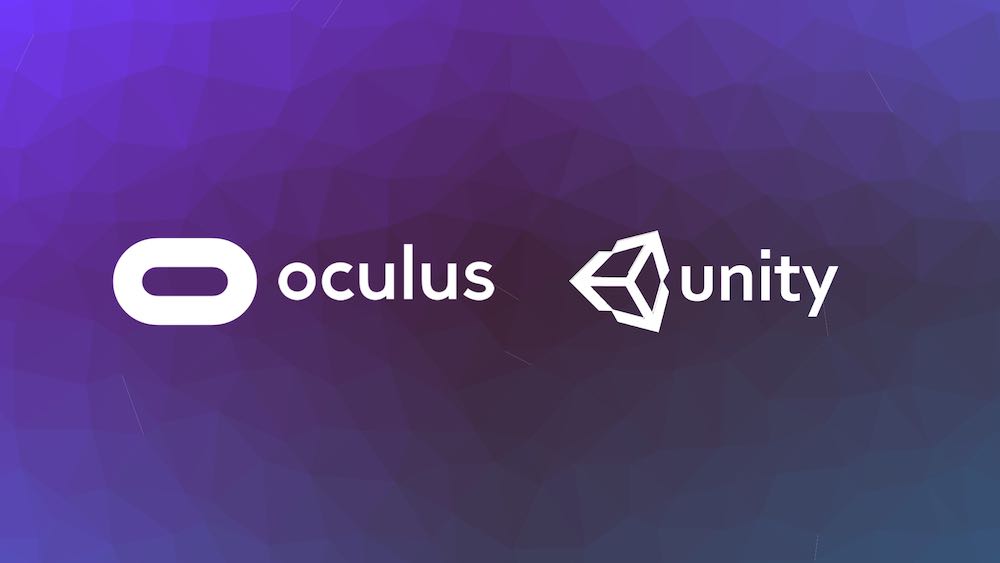Oculus and Unity Have Launched a Free VR Intermediate VR Courses
Oculus has teamed up with Unity to offer a free intermediate virtual training course for advanced Unity developers.
The course will consist of eleven lessons that should take developers 20 hours to complete. Each of the courses will be led by an Oculus or Unity professional who specializes in the area of expertise be it VR movement, sound and interaction design as well as the power optimization of VR apps.

If you already have some basic game development experience and are planning to transition into virtual reality, then Oculus and Unity’s new intermediate level virtual reality game development course will be ideal for you. The course will be ideal for learners that have already racked up a solid foundation in the development of virtual reality experiences. The course is “intermediate” and has been designed to deepen the development capabilities of the learners.
The intermediate course was developed by Scout House. It is available on Unity Learn and the main course of the tutorial is to assist aspiring VR creators “Design, Develop and Deploy VR”. The emphasis of the course is on game programming, user interface (UX) as well as publishing.
The whole course has been broken into 11 units/lessons and should take you about 20 hours to finish. Aspiring learners/creators will learn from various Oculus and Unity experts. The course covers various basic topics on the subject including how they can prototype and plan a virtual reality experience, VR ergonomics, virtual reality user experience (UX) design, spatial audio and app optimization.
The course targets virtual reality game development but the skills acquired here can also be used for consumer and enterprise-focused VR experiences. Once learners have completed the course, they can choose to submit their vertical slice for review by the Oculus team.
Before commencing the course, it is important to have a basic foundation in Unity development as well some familiarity with the VR basics. Users can explore these through various resources such as Oculus’ ‘Build Your First VR App’ tutorial and Unity’s intro tutorials. After that, all that you will need for the course are the Oculus SDK and VRTK, Unity and Oculus hardware. The virtual reality course was developed for Rift S although learners will be able to build apps for both Rift and Rift S.
Below is an overview of the course topics and the names of the instructors:-
Unit 1: Introduction by Chris Pruett from Oculus
In this unit, you will get an overview of the virtual reality industry, learn about the best practices for a successful virtual reality game as well as an overview of the content that you will be learning in the course.
Unit 2: VR game development and prototyping by Ruth Bram and Mari Kyle from Oculus
This unit teaches you about planning, which is key to success in VR game development. Learn how to create a game design document, a player profile report as well as a press kit.
Unit 3: Using Unity to develop VR experiences by Joy Horvath, Game Developer + Instructional Designer at Unity
In this unit, you will learn how you can set up Oculus and Virtual Reality Toolkit (VRTK integrations) in Unity. You will also learn how you can set up a basic virtual reality scene.
Unit 4: Locomotion and Ergonomics by Oculus Software Engineer Eric Cosky
Learn more about the best practices required to make your virtual reality experiences more comfortable and implement a teleportation system.
Unit 5: Hand presence and interaction by Oculus Developer Relations Engineer Matt Franklin
In this unit, learn how the hand interactions work in virtual reality, how you can design interactions to manipulate objects as well as how you can overcome challenges using item placement.
Unit 6: Best UI practices for VR by Oculus Developer Relations Engineer Gabor Szauer
In this unit, transition from 2D to virtual reality and review the virtual reality interaction paradigms. You will also learn how you can design a user-friendly interface for virtual reality.
Unit 7: Sound in VR by Oculus Spatial Audio Technology Lead Robert Heitkamp
The unit teaches users how to implement spatial audio for virtual reality using the Oculus Spatializer Plugin. You can also immerse yourself into the reverb and mixer settings and also learn how you can test the audio.
Unit 8: Performance Requirements by Head of Developer Relations Engineering Matt Conte from Oculus
Know how to be efficient with your assets including how to implement lighting and configure settings for better performance from your virtual reality game.
Unit 9: Optimization of VR Applications by Oculus Developer Relations Engineer Cristiano Ferreira
Immerse yourself deeper into the bottlenecks with Unity Profiler, Unity Profile Analyzer and Frame Debugger. Get also to learn more about the technical requirements needed to pass the Oculus Virtual Reality Checks (VRCs).
Unity 10: Testing Your VR Application by Oculus’ Lisa Brewster and Bruce Wooden
Successfully run tests on your virtual reality application. After completing this unit, users should be able to implement quality virtual reality playtests in their development cycles.
Unit 11: Submission and go-to-market strategy by Oculus’ Mari Kyle
This final unit provides you with a crash course on how to market and drive the awareness of your virtual reality experience as well as pricing strategy. The unit also covers the best practices for submitting an app to the Oculus Store.
https://virtualrealitytimes.com/2019/11/15/oculus-and-unity-have-launched-a-free-vr-intermediate-vr-courses/https://virtualrealitytimes.com/wp-content/uploads/2019/11/Oculus-and-Unity-Courses-600x338.jpghttps://virtualrealitytimes.com/wp-content/uploads/2019/11/Oculus-and-Unity-Courses-150x90.jpgBusinessEducationOculus has teamed up with Unity to offer a free intermediate virtual training course for advanced Unity developers. The course will consist of eleven lessons that should take developers 20 hours to complete. Each of the courses will be led by an Oculus or Unity professional who specializes in the...Sam OchanjiSam Ochanji[email protected]EditorVirtual Reality Times - Metaverse & VR
